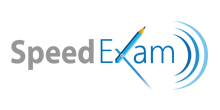Remote proctoring is an innovative solution that ensures the integrity of online exams by supervising students remotely. Through webcams and screen-sharing technology, remote proctoring monitors students in real-time, deterring dishonest practices. Educators and institutions can maintain exam security, uphold academic integrity, and create a trustworthy exam environment, even when students are taking tests from different locations. Remote proctoring technology promotes fairness and honesty in online assessments, making it a crucial tool in the digital age of education.
What Does Remote Proctoring Mean?
Remote proctoring refers to a sophisticated method of supervising online exams from a distance. In this approach, students take their assessments in a virtual environment, while a proctor monitors their activities remotely using webcams and screen-sharing technology. The proctor ensures the exam's integrity by observing students in real-time, deterring cheating attempts and maintaining a secure testing environment. This innovative approach has been also initiated in various test center software.Remote proctoring not only upholds academic honesty but also provides a convenient solution for both educators and students, allowing exams to be taken from various locations while ensuring the same level of vigilance and integrity as traditional in-person exams.
How Do Remote Proctored Exams Work?
Remote proctored exams employ advanced technology to uphold integrity in online assessments. When a student begins the exam, their webcam and microphone are activated, allowing remote proctors to observe them in real-time. These proctors monitor the test environment, ensuring there are no unauthorized resources or activities. Screen-sharing technology enables the proctor to view the student's screen, preventing attempts to navigate away from the exam interface. Any suspicious behavior, such as looking off-screen or attempting to access unauthorized websites, is flagged. Additionally, biometric verification methods, like facial recognition, validate the student's identity. This meticulous supervision guarantees the exam's integrity, mirroring the security standards of in-person examinations.
What Are Remote Proctored Exams?
Remote proctored exams are online assessments that maintain academic integrity by employing virtual proctoring technology. Students take exams from their own devices in a secure environment, while a remote proctor supervises the process remotely. These proctors use webcams, microphones, and screen-sharing technology to monitor students in real-time, ensuring they adhere to the exam guidelines. This approach allows for flexibility, enabling students to take tests from any location while upholding the same level of vigilance as in traditional in-person exams. Remote proctored exams play a pivotal role in the digital transformation of education, providing a secure and trustworthy way to conduct assessments in the online learning landscape.
How Is Remote Proctoring Helpful?
Remote proctoring offers immense benefits in the realm of online assessments. By ensuring exam integrity through vigilant supervision, it upholds academic honesty and fairness. Students can take exams from the comfort of their homes, eliminating the need for travel and reducing logistical challenges. Educators and institutions gain a convenient tool to conduct secure assessments, even for remote or international students. Moreover, remote proctoring technology provides detailed reports and analytics, enabling educators to assess student performance effectively. This method not only simplifies the exam process but also fosters a reliable and trustworthy environment for both educators and students, promoting the widespread adoption of online learning and assessments.
How Does the Remote Proctor Confirm the Test-Taker’s Identity?
Remote proctoring employs advanced identity verification techniques to confirm the test-taker's identity accurately. Biometric verification methods, such as facial recognition and fingerprint scanning, are commonly used. Before the exam begins, the test-taker is required to show their identification documents and perform facial or fingerprint scans, which are then stored securely. During the exam, facial recognition software continuously monitors the test-taker, ensuring they are the same person who verified their identity. Any discrepancies or attempts to impersonate another individual are immediately flagged, maintaining the exam's integrity and ensuring that the person taking the test is indeed the authorized test-taker.
Preventing Cheating in Remote Proctored Exams:
Remote proctoring technology employs various measures to prevent cheating during exams. Firstly, thorough pre-exam identity verification processes ensure that the person taking the test is the authorized test-taker. During the exam, artificial intelligence algorithms and human proctors vigilantly monitor the test environment, flagging any suspicious activities. Advanced technologies, such as facial recognition and screen-sharing detection, can identify if a test-taker is using notes or receiving assistance. Additionally, randomized question pools and time limits for each question minimize the opportunity for collaboration or consulting external materials. These stringent measures collectively create a secure exam environment, deterring any attempts at cheating and upholding the integrity of online assessments.
How SpeedExam Ensures Integrity in Remote Proctored Exams:
SpeedExam employs cutting-edge technology to maintain the highest level of integrity in remote proctored exams. Through advanced AI algorithms and human proctoring, SpeedExam vigilantly monitors test-takers in real-time, detecting any suspicious behavior or unauthorized aids. The system uses facial recognition and screen-sharing detection to confirm the test-taker's identity and prevent collaboration or external assistance. Randomized question patterns and strict time limits further deter cheating attempts, ensuring fairness and accuracy in assessments. SpeedExam's comprehensive approach guarantees a secure testing environment, instilling confidence in educators and students alike, and ensuring the authenticity of online exams.This level of security and integrity is used in advanced promotion assessment software, which is a cornerstone of the SpeedExam platform.
Why SpeedExam is the Go-To Software for Remote Proctored Exams:
SpeedExam stands as the preferred choice for remote proctored exams due to its state-of-the-art technology and unwavering commitment to exam integrity. With real-time monitoring, facial recognition, and AI-powered proctoring, SpeedExam ensures a cheat-free environment. Its user-friendly interface, coupled with robust security features, creates a seamless experience for both educators and students. SpeedExam’s reliability and innovation make it the ultimate solution for trustworthy and efficient remote proctored exams.
Some of the notable features include:
Authentication:
SpeedExam ensures rigorous authentication with facial recognition and ID verification, guaranteeing that the test-taker is accurately identified before the exam starts, providing a secure foundation for assessments.
Real-time Monitoring:
With real-time monitoring, SpeedExam proactively detects any suspicious behavior, ensuring a fair testing environment while the exam is in progress, maintaining the exam's integrity.
Blocking Browser:
SpeedExam blocks unauthorized browsers, preventing test-takers from accessing external resources, guaranteeing a controlled and secure online testing environment.
Live Remote Proctoring:
SpeedExam’s live remote proctoring features human proctors who supervise exams in real-time, ensuring strict adherence to exam guidelines and maintaining a high level of exam integrity.
Recorded Proctoring:
Recorded proctoring captures the entire exam session, allowing institutions to review the footage later for any irregularities or potential breaches of exam protocols, adding an extra layer of security.
Automated Proctoring:
SpeedExam’s automated proctoring uses AI algorithms to monitor and flag suspicious behavior, providing efficient and accurate supervision without human intervention, enhancing the overall exam experience.
Blended Online Proctoring:
SpeedExam offers a blend of various proctoring methods, tailored to specific exam requirements, ensuring flexibility and customization while maintaining the highest level of exam integrity.
Data Storage and Review:
SpeedExam securely stores exam data and footage, allowing institutions to review the information for auditing purposes, ensuring transparency and accountability in the examination process.
Benefits of Online Proctoring:
Online proctoring provides a plethora of advantages in the realm of remote assessments. Firstly, it offers flexibility, enabling students to take exams from anywhere, eliminating geographical constraints. Additionally, it ensures exam integrity by employing advanced AI algorithms and human proctors, deterring cheating attempts. Online proctoring also enhances accessibility, making exams more inclusive for differently-abled students. Moreover, it reduces administrative burdens by automating the proctoring process, saving time and resources. Lastly, it provides detailed analytics, offering valuable insights into student performance for data-driven decision-making.
- Flexible Accessibility: Online proctoring allows students to take exams from any location, overcoming geographical barriers and promoting convenience and accessibility.
- Enhanced Exam Integrity: Advanced AI algorithms and human proctors ensure strict adherence to exam guidelines, deterring cheating attempts and maintaining exam integrity.
- Inclusivity for All: Online proctoring accommodates differently-abled students, providing a level playing field and promoting equal opportunities in assessments.
- Reduced Administrative Burden: Automated proctoring processes save time and resources, streamlining administrative tasks and enhancing operational efficiency for institutions.
- Customized Exam Experience: Online proctoring solutions offer flexibility, allowing institutions to tailor proctoring methods to specific exam requirements and ensuring a personalized exam experience.
- Comprehensive Security Measures: Robust security protocols protect exam data, ensuring confidentiality and safeguarding student information from unauthorized access, bolstering the overall security of online exams.
- Detailed Performance Analytics: Online proctoring systems provide detailed insights into student performance, enabling educators to analyze data and make informed decisions for targeted interventions and improved teaching strategies.
- Environmentally Friendly: Online proctoring reduces the need for physical exam papers, contributing to environmental conservation by minimizing paper usage and promoting sustainable practices in education.
The Future of Remote Proctored Exams:
The future of remote proctored exams holds exciting advancements. Artificial intelligence will play a pivotal role, enabling more sophisticated algorithms to detect cheating attempts accurately. Enhanced biometric verification methods, such as palm vein recognition and voice recognition, will bolster identity authentication. Virtual reality (VR) and augmented reality (AR) technologies may create immersive exam environments, providing a seamless experience for test-takers. Furthermore, blockchain technology may be integrated to ensure the utmost security, making data tampering practically impossible. These innovations will shape a future where online exams are not only secure but also highly immersive and technologically advanced.
Conclusion: Unlocking the Potential of Remote Proctoring
- Innovative Exam Integrity: Remote proctoring pioneers innovative ways to maintain exam integrity, combining AI-driven algorithms and human proctors for vigilant supervision.
- Global Accessibility: Breaking barriers, remote proctoring allows exams to be taken worldwide, promoting accessibility and providing equal opportunities to all students, regardless of location.
- Enhanced Security Measures: With stringent identity verification and real-time monitoring, remote proctoring ensures secure assessments, protecting exam data and upholding academic honesty.
- Tailored Exam Experience: Institutions can customize proctoring methods, adapting to specific requirements and providing a tailored, flexible, and reliable exam experience for both educators and students.
- Seamless Integration: Integrating seamlessly with various learning management systems, remote proctoring simplifies administrative tasks, making exam coordination efficient and streamlined.
- Data-Driven Insights: Capturing detailed analytics, remote proctoring offers valuable data, empowering educators with insights to enhance teaching strategies, intervention methods, and student support.
- Future-Ready Technology: Constantly evolving, remote proctoring adapts to emerging technologies, ensuring it remains at the forefront of secure online assessments, promising a future of innovation and reliability.
- Transformative Education: Remote proctoring transforms the educational landscape, bridging the gap between traditional exams and online learning, fostering trust, integrity, and credibility in the digital age of education.
FAQs
1. Where can I take a proctored exam?
Proctored exams, including those through SpeedExam, can be taken remotely from any location with a stable internet connection.
2. Who is a proctor?
A proctor is an individual, often an educator or supervisor, who supervises exams, ensuring integrity and fair play. SpeedExam uses trained proctors for remote exams.
3. Can a proctor see your screen?
Yes, in remote proctoring, including with SpeedExam, proctors can monitor your screen in real-time to prevent cheating and maintain exam integrity.
4. How Are Web Proctored Exams Different from Un-proctored Exams?
Web proctored exams, like those facilitated by SpeedExam, involve live supervision, ensuring exam integrity. Un-proctored exams lack real-time supervision, potentially compromising integrity.
5. Can an exam be proctored without you knowing?
No, reputable proctoring services like SpeedExam inform test-takers about the proctoring process, ensuring transparency and maintaining trust in the examination system.
Tags:
October 19, 2023

